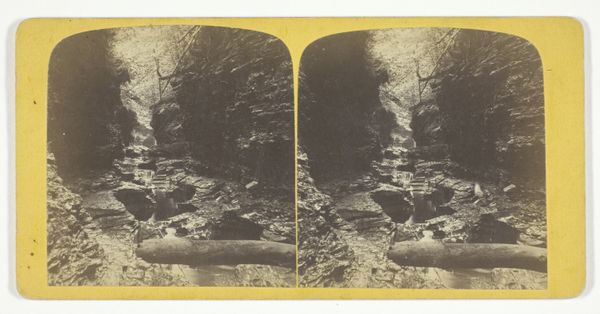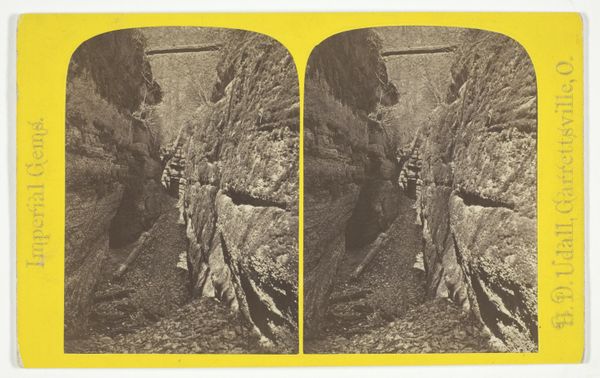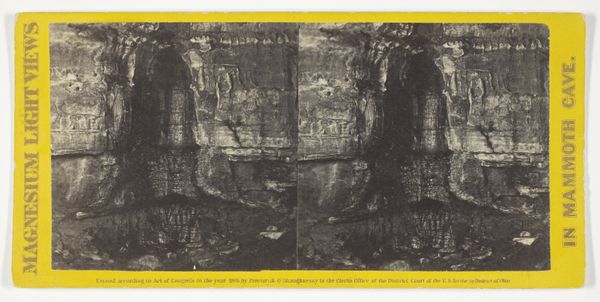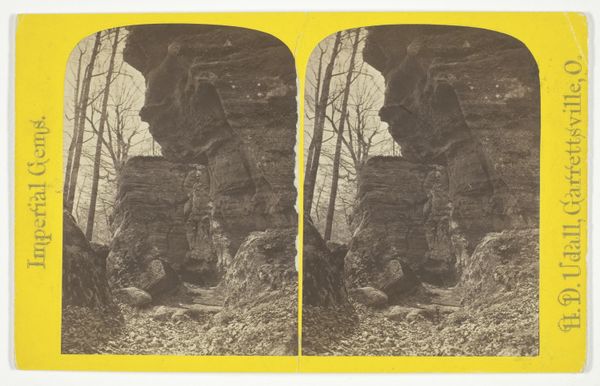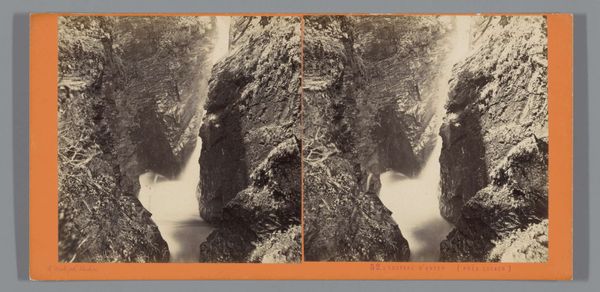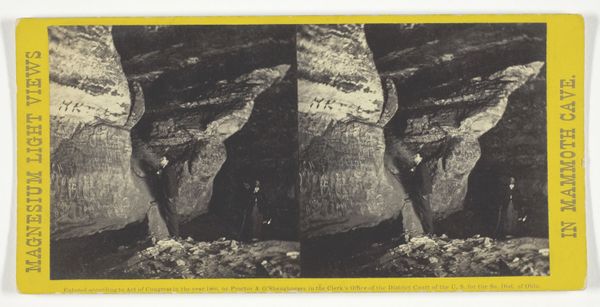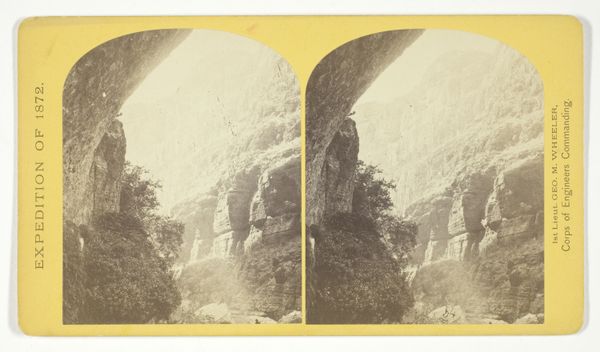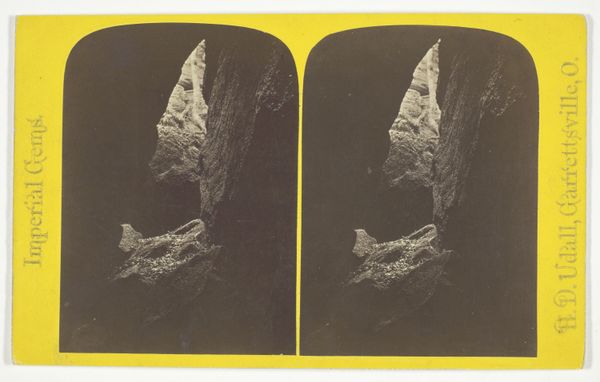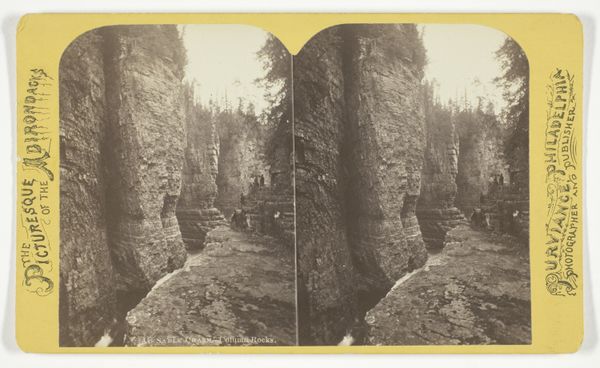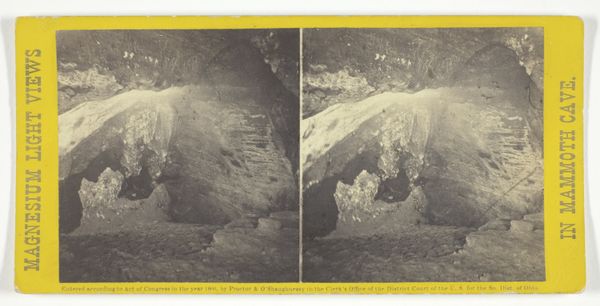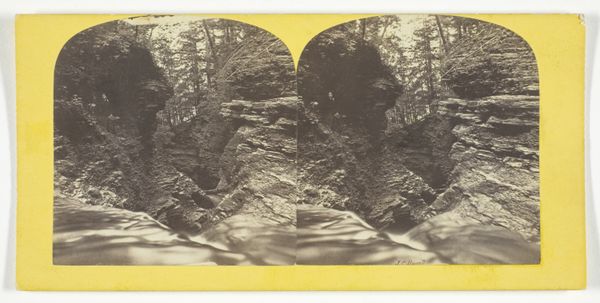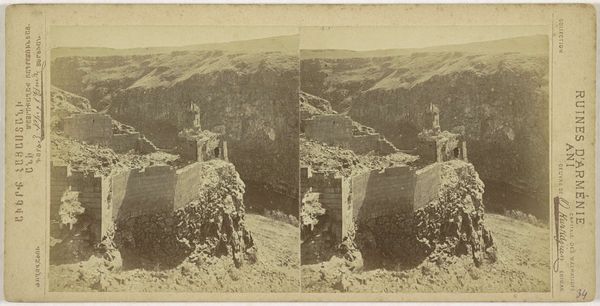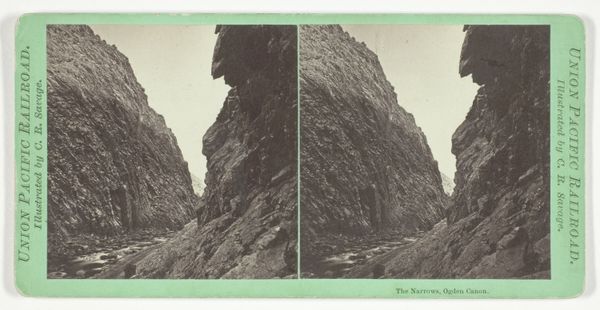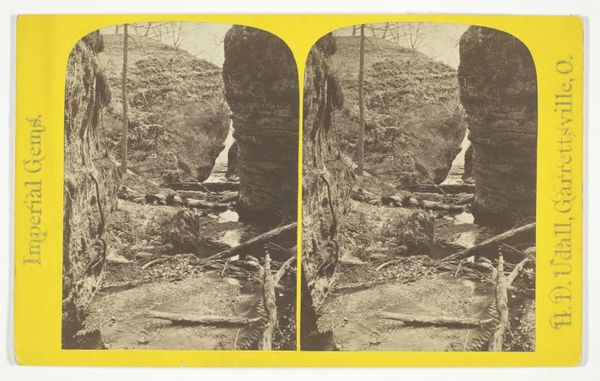
Cathedral Rocks from the Point, Ausable Chasm 1870 - 1876
0:00
0:00
photography
#
16_19th-century
#
landscape
#
photography
#
hudson-river-school
Dimensions: 9.3 × 7.6 cm (each image); 9.9 × 17.8 cm (card)
Copyright: Public Domain
This stereograph of Cathedral Rocks, Ausable Chasm, was made by Seneca Ray Stoddard, an American landscape photographer. It shows the steep, layered rock formations of Ausable Chasm, a popular tourist destination in upstate New York. Stereographs like this one were a mass medium in the late 19th century. Viewed through a special device, they created a 3D image that gave viewers a sense of being present in the scene. Stoddard, like many photographers of the time, sold these images to a growing middle class eager to experience the natural wonders of the American landscape, though they were unable to travel there themselves. We might ask ourselves: what are the politics of this imagery? The commodification of nature through photography coincided with increasing industrialization and urbanization. As people flocked to cities for work, images of untouched landscapes offered a nostalgic vision of a simpler, more authentic past. To understand the meaning of this artwork, one might look into the history of tourism and photography in America, as well as period guidebooks, maps, and travel accounts. By situating the image in its social and institutional context, we can better understand its power and appeal.
Comments
No comments
Be the first to comment and join the conversation on the ultimate creative platform.
